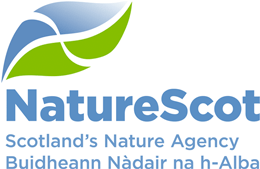13 May, 2016
Statistical News Release: An Official Statistics Publication for Scotland The Proportion of Scotland's Protected Sites in Favourable Condition 2015
Scottish Natural Heritage has today released the latest figures tracking the proportion of Scottish protected natural features in favourable condition.
The main findings show that of the more-than 5,000 Scottish natural features on protected nature sites, 80.4% are either in favourable condition, or unfavourable but recovering towards a favourable condition.
This figure represents a 1.1 percentage points rise in the proportion of natural features in favourable or recovering condition between 2015 and 2016. There has been a nine percentage points increase since assessment reporting began in 2005.
There are three broad types of protected features: earth science, which covers geological outcrops and landforms, fossil beds and caves (98.1% in favourable condition); species (76.3% in favourable condition) and habitats (79.4% in favourable condition). All saw an increase in the proportion of features in favourable condition since last year (species 0.1 percentage points; earth science 0.5 percentage points; and habitats 2.1 percentage points).
Of the individual feature types which are monitored, some feature types showed an increase in the proportion of features in favourable condition, some remained stable, whilst others decreased. Of particular note were wetland features where the proportion of natural features in favourable condition rose from 81.2% in 2014/15 to 85.3% in 2015/16
Invasive species and over-grazing are the main challenges to improving condition from unfavourable to favourable. The proportion of assessments recording invasive species as a negative pressure has risen for the past 4 years to 20% in 2015/16. This includes both non-native species, such as rhododendron in woodlands, and native species, such as birch encroaching on to raised bog habitats.
The proportion of assessments recording over-grazing by wild herbivores and/or domestic stock in 2014/15 fell to 18.1%, but in 2015/16 it increased again to 18.4%. A small, but apparently growing influence on natural features, is the influence of changing climate, in the marine environment with changes in prey species distribution for birds, and for rivers due to more regular and bigger floods.
1. The full statistical publication can be accessed at: http://www.snh.gov.uk/publications-data-and-research/official-statistics/official-stats/sites-favourable/
2. Features protected are species, habitats and earth science features considered to be important at the national (Sites of Special Scientific Interest), European (Special Area of Conservation and Special Protection Area) and international (Ramsar) levels.
3. The data used in the report primarily come from Scottish Natural Heritage’s Site Condition Monitoring programme http://www.snh.gov.uk/protecting-scotlands-nature/protected-areas/site-condition-monitoring/
4. Official statistics are produced in accordance with the Code of Practice for Official Statistics (http://www.statisticsauthority.gov.uk/assessment/code-of-practice/index.html)
Contact information
- Name
- SNH Media
- snhmedia@snh.gov.uk
NatureScot is Scotland's nature agency. We work to enhance our natural environment in Scotland and inspire everyone to care more about it. Our priority is a nature-rich future for Scotland and an effective response to the climate emergency. For more information, visit our website at www.nature.scot or follow us on X at https://x.com/NatureScot
’S e NatureScot buidheann nàdair na h-Alba. Bidh sinn a’ neartachadh àrainneachd na h-Alba agus a’ brosnachadh dhaoine gu barrachd suim a chur ann an nàdar. Tha e mar phrìomhachas againn gum bi nàdar na h-Alba beairteach agus gun dèilig sinn gu h-èifeachdach le èiginn na gnàth-shìde. Tha an tuilleadh fiosrachaidh aig www.nature.scot no air X aig https://x.com/NatureScot
